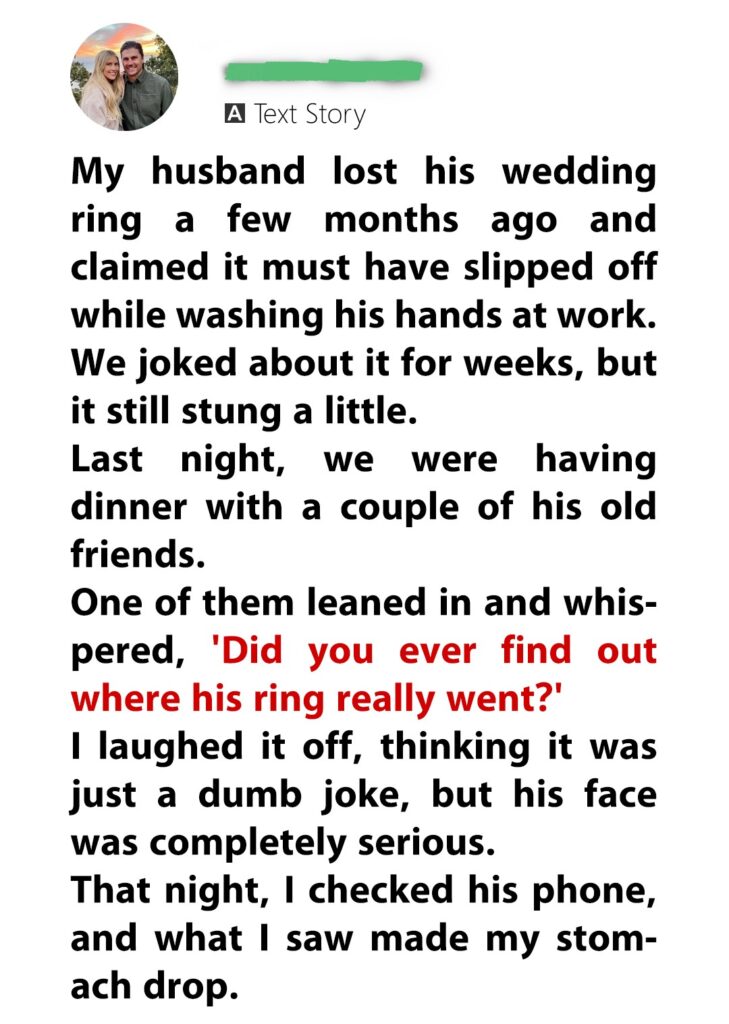It happened quietly, without drama—just a moment of realization, a glance at his hand, and then the sinking truth: the wedding ring was gone. My husband had worn it every day since we said our vows, and now, months later, he confessed he’d lost it. Not recently, but weeks ago. He’d been searching, hoping it would turn up, afraid to tell me. And when he finally did, his voice cracked with guilt.
I didn’t yell. I didn’t cry. I just felt a strange ache—not for the metal, but for what it symbolized. That ring had witnessed our beginnings, our promises, our quiet mornings and late-night talks. It had been there through arguments and reconciliations, through laughter and loss. And now it was gone.
We turned the apartment upside down. We retraced steps, checked gym bags, laundry baskets, car seats. Nothing. It was as if the ring had vanished into thin air. He suggested getting a tattoo in its place—something permanent, something bold. I laughed, half-serious, half-sentimental. “That’s real commitment,” I teased. But deep down, I admired the gesture.
Eventually, we started browsing for a new ring. He was picky, as always—searching for one that felt right, that carried weight, that could become part of him again. And when he finally found it, I made him stand still while I read my vows again, slipping the new ring onto his finger like it was the first time.
Yes, the original ring is gone. But the love? The commitment? The shared life? That’s untouched. Rings can be replaced. What they represent cannot.
So if you’re reading this and you’ve lost something precious—take heart. Sometimes, the loss reminds us of what truly matters. And sometimes, starting again is its own kind of vow.



